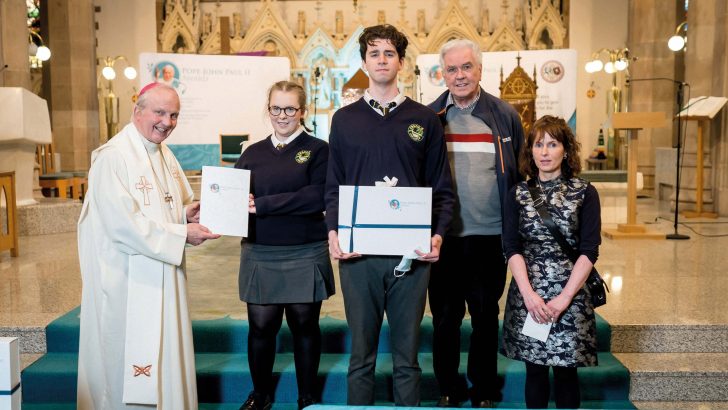The Diocese of Derry held its gatherings between February and March 2022. Four in-person information and facilitation training gatherings (one in each deanery) were led by Bishop Donal McKeown and managed by two professional facilitators with expertise in restorative justice in the community and church. The Diocese is home to 252,347 Catholics.
35 of the 51 (over 68%) parishes held ‘listening gatherings’ along with many individuals - young and old, small groups, organisations and schools. A few parishes expressed their disappointment at the numbers that attended despite the work they did to promote the gatherings. Some parishes that used the strategy of explanation and invitation by a layperson at Sunday or weekly Masses reported high numbers of attendees. The Diocese reported that there may be learning to be considered in this.
The predominant themes that emerged during the Diocese of Derry’s gatherings were:
Working together for a new Church
For those who participated in the journey, the gathering turned out to be a process marked by much more enthusiasm than rancour. The findings in many ways were in harmony with the three parts of the 2018-2021 Diocesan Pastoral Plan ’God is Love’.
The context of the conversations was generally helpful in making this a God-centred process.
The Church in the Diocese of Derry is in a period of transition. There is recognition of the need for a new model of Church which may require a certain mind-shift in all of us. This period of transition may also involve conversion at both personal and community levels.
Church-inspired positivity
There is much to celebrate and be positive about in the Church at present. There was an articulated desire to be a more ministry-rich diocese. The people who participated in this process care and are passionate about their faith and the Church, and many are deeply committed.
Exclusion
Some people experience frustration because they genuinely want to belong to the faith community but are still struggling with feelings of alienation, exclusion and lack of access. However, this indicates a real, underlying care for their faith and the Church rather than indifference or apathy. People do have real dreams and hopes that the Church to which they belong will be more inclusive and merciful.
Empowering laity
There is a clear realisation that people need to be empowered to engage in the Church. Personal invitation is key here and provides a sense of permission for ordinary/lay people to be co-responsible along with the local clergy for faith development in their respective parishes and in the diocese as a whole. To this end, formation and training are essential if people are to build the necessary confidence which will encourage them to use the full range of gifts that they have for service in the Church. Plans for developing a programme of adult faith formation are already well underway in the diocese.
Diocesan communication
Communication is a clear priority. The Church must learn to speak into the secular age in a relatable manner so that our mission is relevant and so that it can really change hearts and minds. There are clear challenges for the Church in the modern world but we must remain positive and be prepared to roll up our sleeves and get stuck in.
A Church fit for the margins
The responses are clear about the need to make a concentrated effort to reach out to those in the margins, and find ways of building bridges that will make it easy for them to return to full communion with their faith communities, especially those who have for whatever reason felt a sense of unworthiness.
Lack of practice among younger generations
There is a real concern for those in the 20-45 years bracket who can appear indifferent or disconnected. These members of our faith communities must be encouraged to engage in the next steps of the Synodal process.
Church-wide unity
Many people who participated in this process expressed their desire for more synodality: “walking together”. The Diocese believes that this is heartening. There is a huge onus on all of the Church to take co-responsibility for honouring people’s expectations about what the process can achieve. People genuinely want to see their ideas being realised, they want the faith community to deliver. The faithful must always remember that the Church ultimately belongs to Christ and that we are all called to be docile to the promptings of the Holy Spirit.


 Participants in the Diocese of Derry's synodal process expressed a desire to the Church to reach out to the margins.
Participants in the Diocese of Derry's synodal process expressed a desire to the Church to reach out to the margins. 
